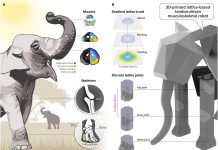
Scientists from Mayo Clinic used artificial intelligence (AI) to help discover and test what the voice can reveal about a patient’s heart health.
They used an AI trained for specific vocal biomarkers to accurately predict which patients were more likely to have clogged arteries that led to further heart problems.
The research is published in Mayo Clinic Proceedings and was conducted by Dr. Jaskanwal Deep Sara et al.
This work builds on earlier studies that looked for signals in the voice of patients with coronary artery disease and then identified the most significant vocal biomarker components.
The team previously identified the voice indicators related to the highest coronary artery pressure.
They used this information to guide the current study involving patients who had a clinically directed coronary angiogram, which is an imaging test that evaluates the amount of blockage in the arteries leading to the heart.
In the study, the team used a smartphone app developed for AI voice analysis.
They were able to predict coronary artery disease outcomes in patients that were given an initial voice screening and then followed for several years.
Compared to those with low vocal biomarker scores, patients who had a high vocal biomarker score at baseline were more likely to have severe chest pain or coronary issues that sent them to the hospital or emergency department.
They also were more likely to have a positive stress test or have confirmed coronary artery blockage during follow-up testing.
Although still in the research stages, the team says AI voice analysis technology could be a low-cost, noninvasive digital health tool to monitor a patient’s risk of coronary artery blockage over time from just about anywhere.
Sign up for our newsletter for more information about this topic.
Previous research has shown that AI can help detect overlooked heart problems.
In a study from Cedars-Sinai Medical Center and published in JAMA Cardiology, researchers show that an artificial intelligence (AI) tool could effectively identify and distinguish between two life-threatening heart conditions.
The two heart conditions are cardiac amyloidosis and hypertrophic cardiomyopathy. They are very easy to miss in health checks.
Cardiac amyloidosis often called “stiff heart syndrome” is a disorder caused by deposits of an abnormal protein (amyloid) in the heart tissue.
As amyloid builds up, it takes the place of the healthy heart muscle, making it difficult for the heart to work properly.
Hypertrophic cardiomyopathy is a disease that causes the heart muscle to thicken and stiffen.
As a result, it’s less able to relax and fill with blood, resulting in damage to heart valves, fluid buildup in the lungs, and abnormal heart rhythms.
Although separate and distinct conditions, cardiac amyloidosis and hypertrophic cardiomyopathy often look very similar to each other on an echocardiogram, the most commonly used cardiac imaging diagnostic.
Importantly, in the very early stages of the disease, each of these cardiac conditions can also mimic the appearance of a non-diseased heart that has progressively changed in size and shape with aging.
In that study, the two-step, novel algorithm was used on over 34,000 cardiac ultrasound videos from Cedars-Sinai and Stanford Healthcare’s echocardiography laboratories.
When applied to these clinical images, the algorithm identified specific features—related to the thickness of heart walls and the size of heart chambers—to efficiently flag certain patients as suspicious for having potentially unrecognized cardiac diseases.
The AI tool picks up subtle cues on ultrasound videos that distinguish between heart conditions that can often look very similar to more benign conditions.
Researchers plan to soon launch clinical trials for patients flagged by the AI algorithm for suspected cardiac amyloidosis.
If you care about heart health, please read studies that diabetes and heart failure are linked; treatment should be too, and this multi-drug therapy could help people with heart failure live 6 years longer.
For more information about heart disease, please see recent studies about 10 common heart tests everyone needs to know, and results showing this new drug could help treat heart disease, cancer, Alzheimer’s.
Copyright © 2022 Knowridge Science Report. All rights reserved.



